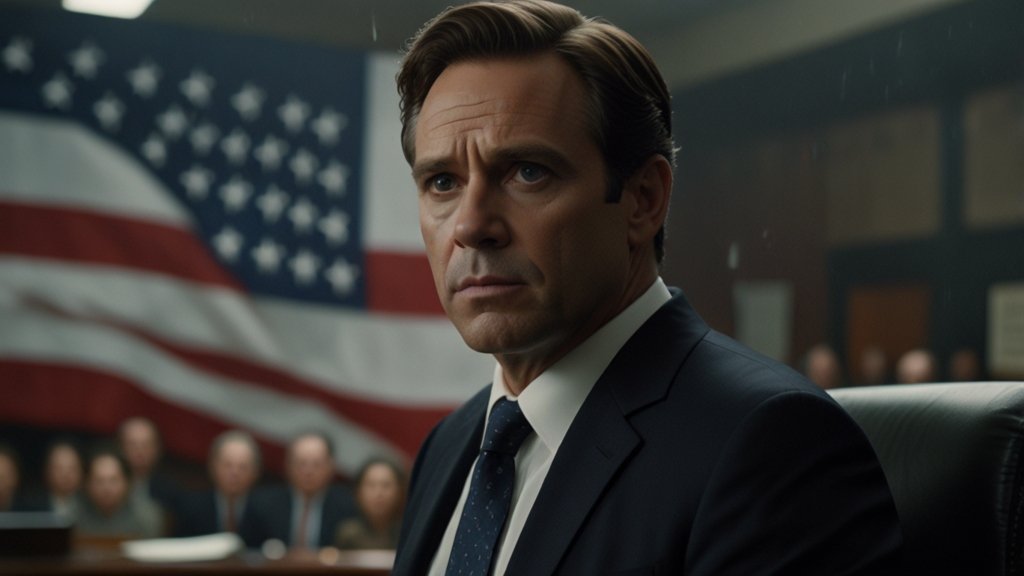Table of Contents
- Core Elements of a Gripping Political Thriller
- Pacing and Suspense: Keeping Readers on the Edge
- Blending Realism and Imagination
- Crafting Complex Characters
- The Art of Plot Twists
- Intelligent Themes and Relevance
- Influence of Political Thrillers in Popular Media
- How Readers React to Political Suspense
Core Elements of a Gripping Political Thriller
Political thrillers have long captivated readers by plunging them into worlds brimming with power struggles, high-stakes conspiracies, and shadowy alliances. The brilliance of this genre lies in its ability to turn seemingly ordinary situations—vote counts, news leaks, or diplomatic negotiations—into heart-pounding drama. Every page propels the narrative forward when crafted well, making readers feel they are participants rather than mere observers. The urgency and uncertainty in a well-written political thriller book Washington, DC, prove that this genre doesn’t rely on headline-breaking scandals or violent outbursts; it depends heavily on meticulous plotting, deep intrigue, and a steady escalation of stakes. Whether the setting is a storied Capitol building, a labyrinthine intelligence agency, or a quiet suburban home, political thrillers generate suspense by building worlds where secrets are the norm and trust is always in short supply. The risks in these stories are not simply personal but systemic—failures and triumphs can affect entire nations or even the world’s fate. This dynamic pulls readers into a relentless game of wits, where every power play could lead to a seismic shift in the balance of control. Provocative and, at times, uncomfortably close to reality, the genre reflects society’s deepest anxieties and curiosities about how decisions are truly made behind closed doors.
Pacing and Suspense: Keeping Readers on the Edge
One of the standout features of political thrillers is their unparalleled sense of pacing. Master storytellers play with tempo, knowing precisely when to quicken the story with tense confrontations or slow it down for introspective moments. The art of sustaining suspense and withholding just enough information turns reading into a visceral experience. Whether the narrative action unfolds across a chaotic day or through sprawling months of backroom machinations, the suspense becomes the novel’s beating heart. Expertly woven pacing keeps readers eager for the next twist. The balance of action and introspection is key. Some stories are structured like chess matches, alternating between dynamic scenes and slow-burn planning sessions. Others shift perspectives from protagonist to antagonist, maintaining tension by showing the same dilemmas from multiple angles. Suspense thrives in an atmosphere where any character could reveal a hidden motive, no matter how trusted. This constant alertness makes readers question everything, even their judgment about who to root for or suspect.
Blending Realism and Imagination
The credibility of political thrillers rests on a careful blend of realism and invention. Familiar elements draw from recent headlines—real government systems, newsrooms, diplomatic tension, or intelligence activities—to create a sense of authenticity. Realism is enhanced through deep background research, often borrowing details from actual policy debates, whistleblower accounts, or historical scandals. When readers sense that the events on the page could plausibly occur, their investment in the story deepens. Yet, imagination transforms a political thriller from reporting into riveting entertainment. Authors invent secret agencies, uncannily prescient technologies, or plausible “what-if” scenarios to up the suspense and create originality. Striking a satisfying balance can be difficult—veer too close to fact and risk feeling like a documentary, stray too far, and the story loses credibility. The genre is most effective when it uses creative freedom to make the ordinary extraordinary, encouraging readers to question how much of the story could someday come true in their world.
Crafting Complex Characters
The best political thrillers are populated by deeply nuanced individuals—characters who exist in shades of gray rather than simple black and white. Heroes may resort to questionable means for a noble end, while antagonists often have motivations that, on some level, elicit sympathy or understanding. These subtleties create tension and allow readers to invest emotionally in the outcome. Realistic characterization involves more than just job titles or backstories. The display of ambition, fear, guilt, and vulnerability brings fictional operatives, reporters, and government officials to life. The ethical quandaries they face—forced compromises, impossible decisions, and personal sacrifices—invite reflection and debate. Over time, these flawed heroes and complicated villains create a tapestry of relationships ripe for betrayal and alliance, resulting in a narrative web that keeps readers on their toes with every turn of the page.
The Art of Plot Twists
A signature of the political thriller is its expertly orchestrated plot twist. Devoted readers know that trusting the obvious answer or the most prominent character is risky. Plot twists are not simply about shock value—they are meticulously constructed, with competent authors dropping hints and red herrings that, in hindsight, seem inevitable. The eruption of a well-built twist often redefines the stakes, shifting allegiances and unraveling intricate webs of lies. The most enduring plot twists serve both the characters and the overarching themes. Audiences savor these revelations, feeling the exhilarating jolt of surprise and, at the same time, the satisfaction that the clues were hidden in plain sight. In these moments, a political thriller distinguishes itself from other genres, showing the power of narrative misdirection at its best.
Intelligent Themes and Relevance
At their most impactful, political thrillers become mirrors reflecting the anxieties, hopes, and controversies of the societies in which they’re written. Themes of corruption, surveillance, civil liberties, and the role of the media are standard, granting narrative weight far beyond mere entertainment. These stories prompt readers to question institutional power, individual responsibility, and the blurry lines that often separate what is legal from what is just. The genre’s ability to weave contemporary themes into suspenseful plots makes each story timely yet universal. A compelling political thriller can influence how readers interpret the daily news, sparking debates at book clubs and inspiring thoughtful articles long after publication. The genre offers a gripping ride and an opportunity to process social issues from a fresh perspective—one that may prompt reconsidering the world around us, through the book’s pages.
Influence of Political Thrillers in Popular Media
The popularity of political thrillers has only grown with their adaptation into television and film. Visual storytelling amplifies the tension of high-stakes political intrigue, placing viewers in the thick of the action. Adaptations make complex plots digestible for broader audiences through fast-paced episodes, cinematic visuals, and star-studded casts, often reinvigorating interest in the source material. Adapted stories often help spark conversation about real-world political dynamics, causing audiences to draw parallels between on-screen events and headlines. This cross-media presence sustains the influence of political thrillers, keeping them at the forefront of popular culture and ensuring the genre evolves with public taste and technology.
How Readers React to Political Suspense
The final hallmark of a truly thrilling political thriller is the response it evokes in the reader. These stories are engineered for engagement—each carefully chosen detail, plot point, and revelation is designed to cause readers to question, analyze, and react. The best works leave one searching for clues late into the night or spark spirited debates among friends and colleagues. Beyond simple entertainment, these novels invite critical thinking and empathy for characters in impossible dilemmas. Readers see themselves in these stories: confronting authority, choosing sides, and wondering what decisions they might make if thrust into the heart of national—or even global—crises. The genre’s lasting appeal comes from this blend of emotion and intellect, making political thrillers a powerful tool for escapism and reflection on the issues that shape our world.
YOU MAY ALSO LIKE: Law Office of Kevin Zazzera: Staten Island Bankruptcy Help











